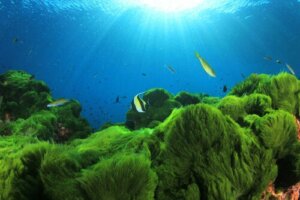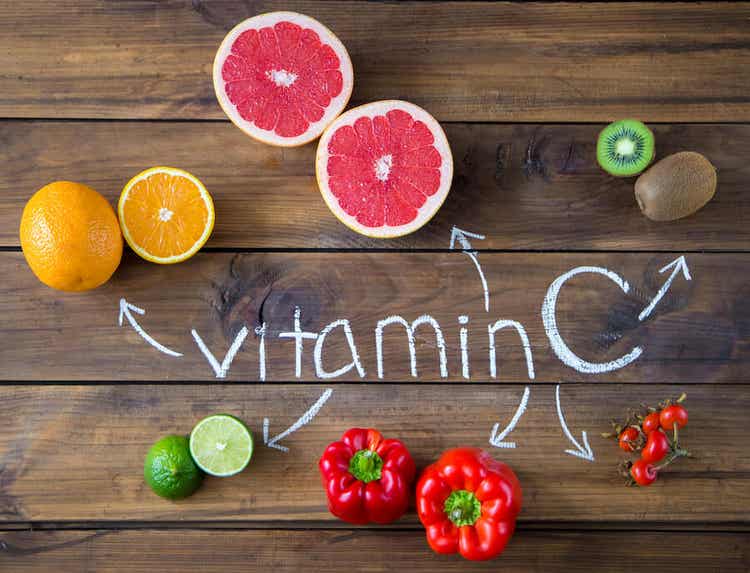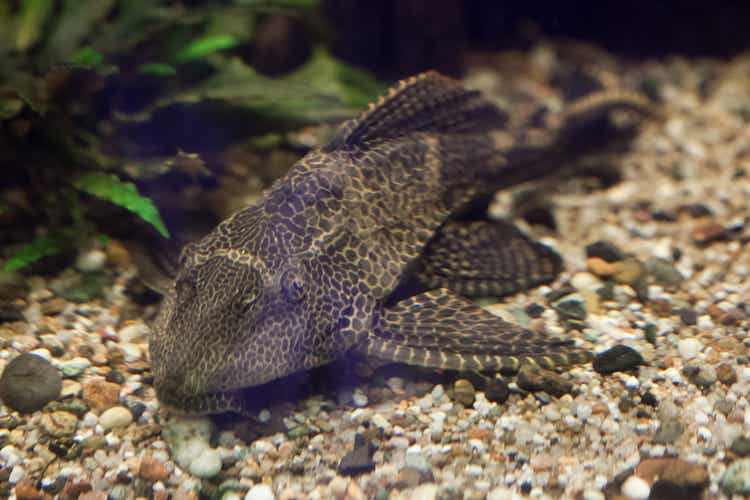Fun Facts About Edible Plankton


Written and verified by the nutritionist Saúl Sánchez Arias
One of today’s culinary revolutions, along with insects, is the consumption of edible plankton. This is a group of microorganisms found in water, about 650 feet deep.
Normally, it’s a food source for different types of marine life, like whales. However, it’s becoming more common in the kitchen because it has nutrients that can benefit human health.
Edible plankton: A source of vitamins
Plankton has lots of vitamin C and vitamin E. The first is closely related to immune function, according to a study from 2016. In addition, they help metabolize iron and improve its absorption. As if this weren’t enough, they are a source of antioxidants and help make collagen.
Vitamin E acts as a powerful antioxidant. Consuming it can help prevent and treat neurodegenerative processes like Alzheimer’s, as stated in an article published in the International Journal of Molecular Sciences. In addition, it helps protect you against cardiovascular diseases since it can reduce the oxidation rate of LDL lipoprotein.

Excellent organoleptic characteristics
On the other hand, edible plankton has organoleptic characteristics that make it very beneficial in the kitchen. It can have a strong sea flavor, which makes it a sought-after product to enhance the aromas of many dishes.
This is one of the reasons for its high price, which could be about one thousand dollars per pound. Fortunately, a few teaspoons are enough to enrich almost any dish.
Edible plankton: Sources of protein and fatty acids
Edible plankton has a protein-rich in essential amino acids, which is different from the traditional concept of vegetable protein. However, it’s mostly water, so it doesn’t have as much protein as animal products.
Additionally, it’s rich in omega 3 fatty acids. Thanks to this nutrient, along with vitamin E, plankton becomes a heart-healthy food.
Consuming it can slightly change the lipid profile and prevent oxidation. This can protect you from certain cardiovascular diseases. However, the amount of plankton used in food is not high enough to benefit from these nutrients. So, this marine vegetable doesn’t have a lot of health benefits.
You might be interested: Omega-3-Rich Fish That You Should Start Eating

Superfoods don’t exist
Although there are people who think edible plankton is a superfood, most current scientific studies don’t think this exists.
No product can prevent or cure disease by itself. Its performance depends on the rest of the foods that make up the diet. So, to get the positive effects from any product, it needs to be a part of a varied and balanced diet.
Check this out: 5 Healthy and Balanced Breakfast Options To Help You With Weight Loss
Edible plankton, a rare food
Despite its organoleptic characteristics, its antioxidants, and vitamins, plankton is a rare food product nowadays.
It’s used in haute cuisine to add flavor and even color to certain dishes. However, its high price makes it hard for most people to access.
Despite everything, it has lots of nutrients and good antioxidant capacity. Its vitamin E and omega 3 fatty acids make it a great ally to the cardiovascular system. However, you can find these nutrients in nature in lots of products. This way, you don’t need to eat plankton to make sure you get them.
Remember, superfoods don’t exist, and to be healthy, you need to follow healthy lifestyle habits. For example, following a varied and balanced diet help you have enough energy.
Finally, prioritizing fresh foods over processed foods will help reduce the risk of developing complex diseases. In addition, make sure to combine this with exercising regularly.
All cited sources were thoroughly reviewed by our team to ensure their quality, reliability, currency, and validity. The bibliography of this article was considered reliable and of academic or scientific accuracy.
- Kim H., Jan M., Kim Y., Choi J., et al., Red ginseng and vitamin C increase immune cell activity and decrease lung inflammation induced by influenza A virus/H1N1 infection. J Pharm Pharmacol, 2016. 68 (3): 406-20.
- Lloret A., Esteve D., Monllor P., Cervera Ferri A., Lloret A., The effectiveness of Vitamin E treatment in alzheimer’s disease. Int J Mol Sci, 2019.
- Castells, P. (2019). El plancton comestible. Investigación y ciencia, (513), 57-57.
This text is provided for informational purposes only and does not replace consultation with a professional. If in doubt, consult your specialist.








